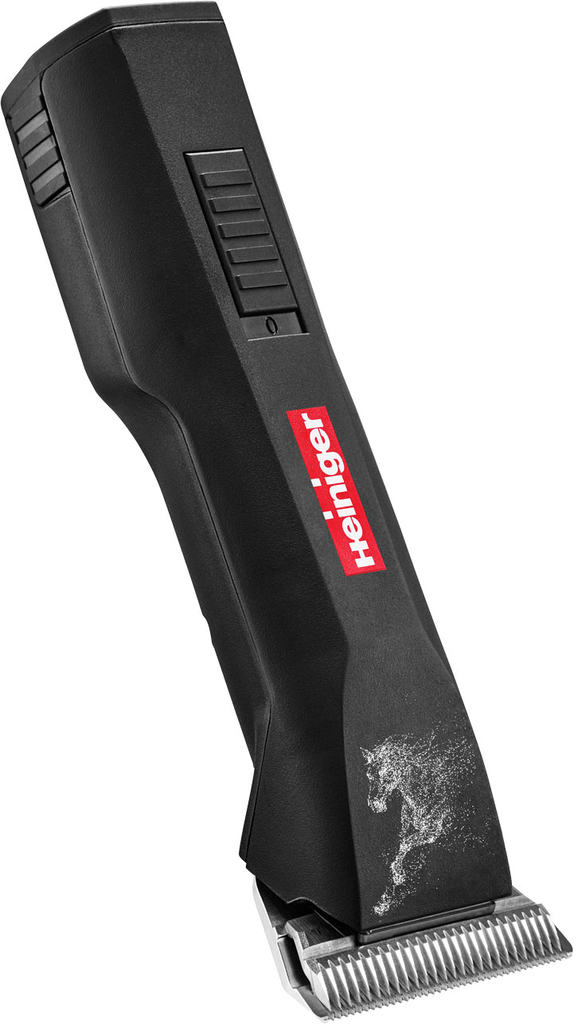Hoe to Clip a Nervous Horse Yourself - 202311 September 2023 | Beth
Clipping a nervous horse can be challenging, but with patience, preparation, and the right approach, you can make the experience as stress-free as possible for both you and the horse. It is very important to take the time to train your horse – you do NOT want to need to call the vet and sedate your horse!
Here are some steps to help you clip a nervous horse: 1. Preparation: Grooming: Before clipping, make sure the horse is clean and free of dirt and loose hair. This will help the clipper blades run smoothly and reduce the risk of tugging or pulling. A good shampoo, like the popular Wahl shampoos can help. Quiet Environment: Choose a quiet, well-lit, and familiar environment for clipping. Minimize distractions and noise that may make the horse more nervous. It’s a good idea to have a treat for your horse. Safety Equipment: Wear appropriate safety gear, including closed-toe shoes, to protect yourself while working with the horse. Secure the Horse: Ensure the horse is securely tied or held by a helper. Safety should be a priority when dealing with a nervous horse. 2. Desensitization: Introduction to Clippers: Before you start clipping, introduce the horse to the clippers while they are turned off. Let the horse see, hear, and smell the clippers. Rub them gently on the horse's body, starting with less sensitive areas like the neck or shoulder. Gradual Exposure: Gradually increase the exposure to the clippers over multiple sessions. Allow the horse to get used to the sound and vibrations. Reward the horse with treats and praise for calm behaviour. You can also start by using a trimmer rather than a full size clipper. And if a trimmer is too much for your horse, we have known people to successfully desensitise their horse by using a electric toothbrush over their body, or a vibrating phone. The legs are usually the most sensitive area, so keep those for last. 3. Choose the Right Clippers: Use quiet, low-vibration clippers if possible, as loud or vibrating clippers may startle a nervous horse. There are some terrible clippers in the market place, so please be careful. Some excellent choices for nervous horses are the ‘all-in-one’ style clippers that take the A5 snap on blades. These tend to be much quieter with less vibration and they allow you to get to awkward areas easily. The Heiniger Saphir horse and the Liveryman Harmony Plus are the best of this type of clipper. If your horse has coarse or ‘tricky’ hair, of if you have multiple horses, you’ll need something with more power – the Heiniger Xplorer or Xplorer Pro are probably the quietest full size clipper. The Liser Eclipse is also a good option, but is slightly louder than the Heiniger Xplorer. You can see the full range of our clippers and special offers HERE! 4. Work Slowly: Start with a less sensitive area, such as the neck or shoulder, rather than the face or legs. Move the clippers slowly and steadily. Avoid sudden movements or loud noises that could startle the horse. Keep the hand holding the clippers steady and use the other hand to guide the skin taut to avoid nicks or uneven clipping. Make long, slow strokes. It can be tempting to rush, but it usually makes things worse! Use lots of oil, to reduce heat and friction. And make sure your blades are sharp, with no broken teeth – this will make for a safer and more comfortable clip. 5. Positive Reinforcement: Use positive reinforcement techniques such as treats and verbal praise to reward the horse for calm behaviour. Offer treats during breaks to create a positive association with clipping. 6. Take Breaks: If the horse becomes too nervous or agitated, take breaks as needed. Allow the horse to relax before continuing. 7. Gradual Progress: Gradually work your way to more sensitive areas, such as the face and legs, as the horse becomes more comfortable with the clipping process. 8. Be Patient: Patience is key when working with a nervous horse. Some horses may take longer to adjust to the clipping process than others. 9. Consider Professional Help: If you're not experienced with nervous horses or if the horse's anxiety is severe, consider seeking assistance from a professional trainer or groomer who specializes in working with nervous horses. Remember that safety, both for you and the horse, is the top priority. If the horse's anxiety becomes too extreme or dangerous, it may be necessary to postpone clipping until the horse can be adequately trained and desensitized.
The clipper and blade make a big difference. Please make sure you have the right clipper for both you and your horse. Is it the right weight for you to use comfortably? Is it quiet enough for your horse? Are the blades correct for your horse’s type of hair? If you have any questions, please email sales@farmcareuk.com. We are a family run business and we are happy to help you get the right clipper for your needs. WE also have some of the best offers in the UK!
www.FarmCareUK.com
|
|




 Basket |
Basket | 